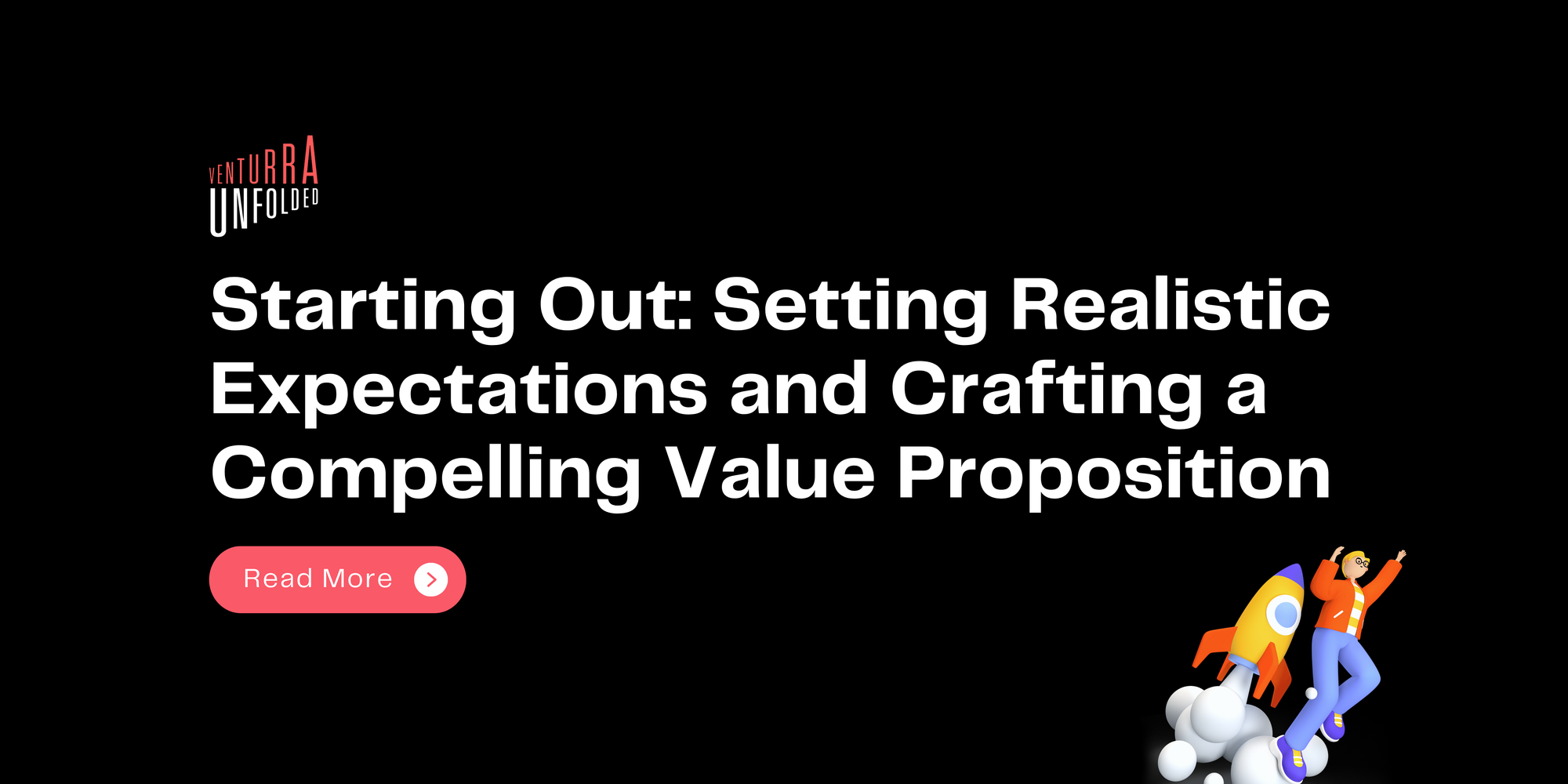Starting Out: Setting Realistic Expectations and Crafting a Compelling Value Proposition

Embarking on the journey of building a startup is like setting sail on a new adventure. However, the excitement of the journey often comes with unrealistic expectations and challenges, especially when it comes to securing funding and defining your value proposition.
In this Unfolded, we'll delve into the importance of setting realistic expectations and crafting a compelling value proposition to help you navigate the early stages of your startup journey with clarity and confidence.
The Power of Simplicity
While many founders believe that a complex product or service is the key to success, simplicity can often be more powerful. By focusing on solving a specific problem simply and effectively, you can create a value proposition that resonates with your target audience and sets you apart from competitors.
- Setting Realistic Expectations:
Starting a startup is not a sprint, it's a marathon. It's important to set realistic expectations from the outset. Understand that success won't happen overnight and be prepared for the long haul. Set achievable milestones and celebrate each small victory along the way. - Crafting Your Value Proposition:
Your value proposition is the foundation of your startup. It's what sets you apart from competitors and convinces customers to choose your product or service. Start by identifying the problem you're solving, the target audience you're serving, and the unique benefits you offer. Keep it simple, clear, and compelling. - Understanding Your Market:
Before you can craft a compelling value proposition, you need to deeply understand your market. Conduct thorough market research to identify your target audience, understand their pain points, and assess the competitive landscape. Use this information to tailor your value proposition to meet the specific needs of your market. - Testing and Iterating:
Your value proposition is not set in stone. It's important to test different versions with your target audience and gather feedback. Use this feedback to iterate and refine your value proposition until it resonates with your audience and drives conversions. - Communicating Your Value Proposition:
Once you've crafted your value proposition, it's crucial to effectively communicate it to your target audience. Use clear and concise language that highlights the benefits of your product or service. Leverage different channels, such as your website, social media, and marketing materials, to ensure your value proposition reaches your audience. - Aligning Expectations with Reality:
As you progress on your startup journey, it's important to continually align your expectations with reality. Be open to pivoting your strategy based on feedback and market dynamics. Stay agile and adaptable, and always keep your eye on the long-term vision.
Conclusion
Setting realistic expectations and crafting a compelling value proposition are essential steps in the early stages of building a startup. By understanding the power of simplicity, setting achievable milestones, and aligning your expectations with reality, you can navigate the challenges of entrepreneurship with confidence and clarity. Remember, the journey may be long, but with the right mindset and strategy, success is within reach.

